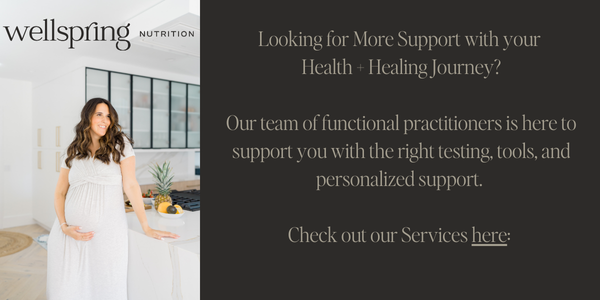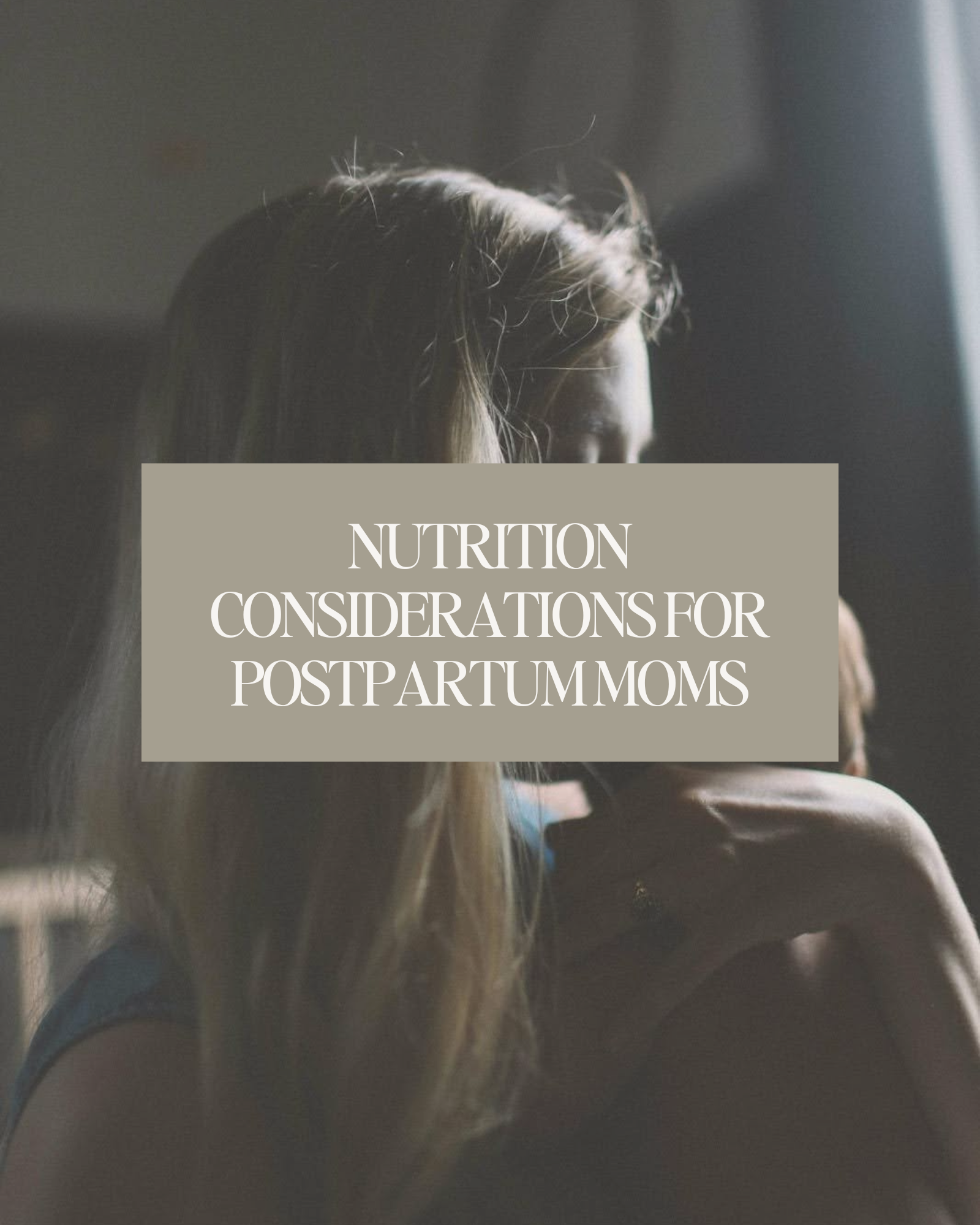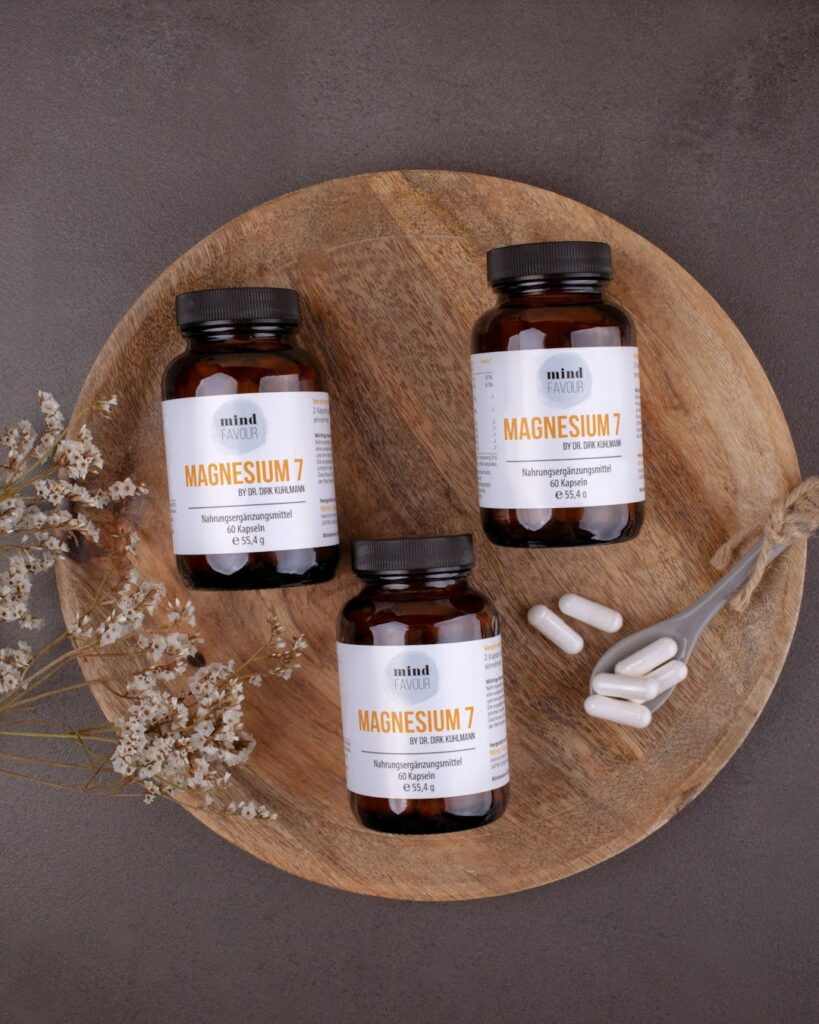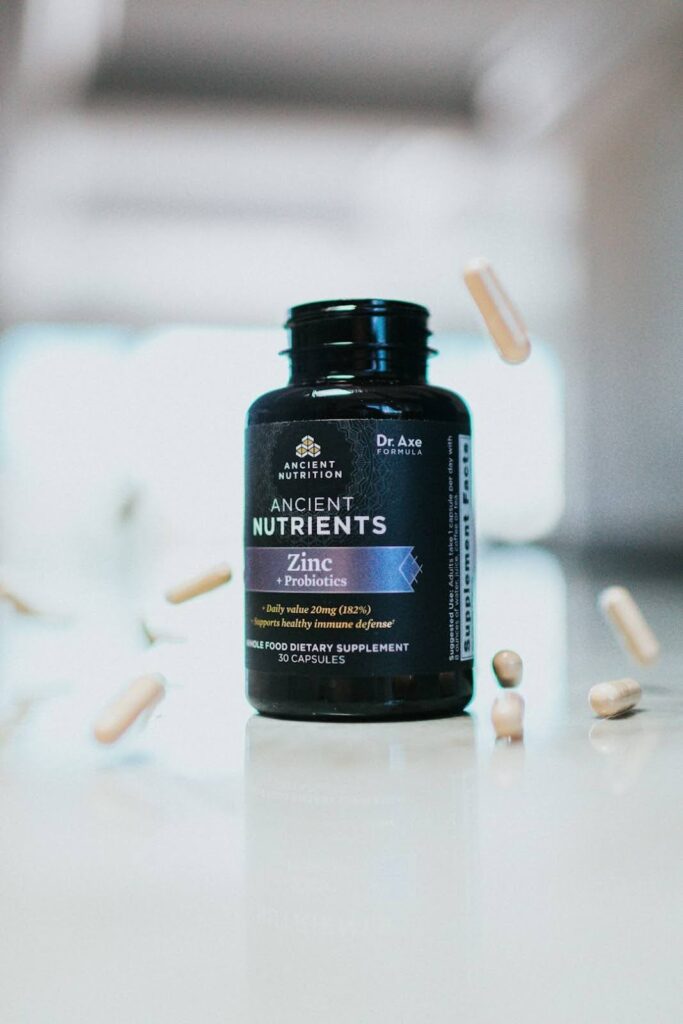Lifestyle
Resources
Style
Planning
View All
Written by: Lauren Chamberlain
Edited and Reviewed By: Anabelle Clebaner MS, RDN
If you’re trying to conceive, the food on your plate might be more important than you think! The link between diet and fertility is stronger than ever, with research showing that the right nutrition can make all the difference in hormone balance, egg and sperm quality, and overall reproductive health. Enter the Modified Mediterranean Diet – an upgraded version of one of the world’s healthiest eating patterns, tailored specifically for fertility support. Packed with antioxidants, healthy fats, and essential nutrients, this approach can help set the stage for a successful pregnancy. Let’s dive into how you can use food as a powerful tool to enhance fertility naturally!
The Role of Nutrition in Fertility
What you eat plays a direct role in shaping your reproductive health. A well-balanced diet provides the essential nutrients needed for hormone production, optimal egg and sperm quality, and a healthy reproductive system. Poor dietary choices, on the other hand, can lead to inflammation, oxidative stress, and metabolic imbalances, all of which can impair fertility.
One of the key factors in fertility is oxidative stress, which occurs when free radicals damage cells, including eggs and sperm. Antioxidant-rich foods such as berries, leafy greens, and nuts help neutralize these harmful compounds, protecting reproductive cells and improving their function. Research has shown that a diet high in antioxidants is linked to improved sperm motility and morphology, as well as better ovarian function in women.
Another crucial aspect is hormonal balance. Hormones like estrogen, progesterone, and testosterone rely on a steady supply of vitamins and minerals to function properly. Nutrients such as zinc, vitamin D, and omega-3 fatty acids support hormone synthesis and regulation, helping to optimize fertility. Consuming high-quality protein sources, healthy fats, and fiber-rich carbohydrates helps maintain stable hormone levels and reduces the risk of conditions like polycystic ovary syndrome (PCOS), which is a leading cause of infertility.
Additionally, mitochondrial health plays a significant role in reproductive success. Mitochondria, known as the powerhouses of the cell, provide the energy needed for fertilization and embryo development. Nutrients like CoQ10, found in fish, nuts, and organ meats, support mitochondrial function, ensuring that eggs and sperm have the energy required for optimal performance.
Finally, blood sugar stability is vital for fertility. High blood sugar levels can disrupt ovulation, impair egg quality, and contribute to insulin resistance, which is commonly associated with PCOS. A diet that prioritizes low-glycemic carbohydrates, lean proteins, and healthy fats can help regulate blood sugar levels and improve overall reproductive health.
By focusing on nutrient-dense foods that combat oxidative stress, support hormone production, enhance mitochondrial function, and stabilize blood sugar, you can create the best possible environment for conception and a healthy pregnancy.
Why the Modified Mediterranean Diet?
The Mediterranean diet has long been associated with numerous health benefits, including improved heart health, reduced inflammation, and better metabolic function. Studies have found that adherence to a Mediterranean diet is linked to increased fertility, improved assisted reproductive technology (ART) outcomes, and better pregnancy success rates.
However, for optimal fertility benefits, modifications to the traditional Mediterranean diet can enhance its effects. A modified Mediterranean diet prioritizes lower glycemic load foods, nutrient-dense proteins, and specific fertility-enhancing nutrients.
Understanding Glycemic Index vs. Glycemic Load
People often hear about glycemic index (GI) and glycemic load (GL) when discussing blood sugar management, but they are not the same. The glycemic index measures how quickly a carbohydrate-containing food raises blood sugar on a scale from 0 to 100. However, it does not account for portion size. Glycemic load, on the other hand, considers both the GI and the amount of carbohydrates in a typical serving, giving a more accurate picture of a food’s impact on blood sugar. For fertility, focusing on low glycemic load foods is more beneficial for stabilizing blood sugar and hormone balance.
Read more about how to balance blood sugar through your meals here.
Key Components of the Modified Mediterranean Diet
1. Healthy Fats for Hormone Balance
Healthy fats play a vital role in hormone production and cell membrane integrity. The modified Mediterranean diet emphasizes:
- Extra virgin olive oil
- Avocados
- Nuts and seeds (e.g., walnuts, flaxseeds, almonds)
- Omega-3-rich fatty fish (e.g., salmon, sardines, mackerel)
- Grass-fed animal fats in moderation
These fats support reproductive hormone function and reduce inflammation, benefiting egg and sperm quality.
2. High-Quality Protein Sources
Protein is essential for reproductive health, but the source matters. This diet focuses on:
- Grass-fed beef and pasture-raised poultry
- Wild-caught fish
- Eggs (rich in choline and vitamin B12)
- Legumes and lentils
- Full-fat dairy (linked to improved ovulation in women with PCOS)
Protein from high-quality sources supports mitochondrial function in eggs and sperm and provides key amino acids necessary for hormone production.
3. Antioxidant-Rich Foods
Oxidative stress is a significant contributor to poor egg and sperm quality. The modified Mediterranean diet is rich in antioxidants that combat free radical damage:
- Berries (blueberries, raspberries, strawberries)
- Dark leafy greens (spinach, kale, Swiss chard)
- Cruciferous vegetables (broccoli, Brussels sprouts)
- Herbs and spices (turmeric, ginger, rosemary)
A diet high in antioxidants has been shown to improve sperm motility and morphology while enhancing egg quality.
4. Low-Glycemic Carbohydrates
Blood sugar imbalances can negatively impact fertility, particularly in individuals with insulin resistance or PCOS. This diet reduces refined grains and includes:
- Quinoa, farro, and barley in moderation
- Sweet potatoes, squash, and beets
- Legumes and lentils for fiber and protein
Stabilizing blood sugar through a low-glycemic diet helps regulate ovulation and improve egg quality.
5. Essential Micronutrients for Fertility
Several key vitamins and minerals are essential for reproductive health:
- Folate & B Vitamins: Support methylation and DNA synthesis (found in leafy greens, beans, and liver).
- Vitamin D: Linked to improved ovarian function and implantation (from sunlight, fatty fish, and fortified dairy).
- Zinc: Essential for sperm production and egg maturation (in nuts, seeds, and shellfish).
- CoQ10: Supports mitochondrial function in eggs and sperm (in grass-fed meat, fish, and supplements).
- Choline: Crucial for fetal brain development and egg quality (in eggs and liver).
Learn more about my recommendations for prenatal supplements here.
Practical Meal Ideas for Fertility Support
To make following this diet easier, here are additional meal ideas:
Breakfast:
- Greek yogurt parfait with walnuts, chia seeds, and fresh berries.
- Scrambled eggs with sautéed spinach, tomatoes, and feta cheese on whole-grain toast.
- Oatmeal with almond butter, flaxseeds, and a sprinkle of cinnamon.
Lunch:
- Grilled salmon with quinoa, steamed asparagus, and a drizzle of olive oil.
- Mediterranean chickpea salad with cucumbers, cherry tomatoes, red onion, feta cheese, and olive oil dressing.
- Lentil soup with a side of whole-grain bread and a mixed greens salad.
Dinner:
- Grass-fed steak with sweet potato mash and roasted Brussels sprouts.
- Baked cod with a side of roasted vegetables (zucchini, bell peppers, eggplant) and brown rice.
- Chicken and vegetable stir-fry with cauliflower rice and sesame ginger dressing.
Snacks:
- Hummus with carrot and celery sticks.
- A handful of almonds and dark chocolate.
- Cottage cheese with flaxseeds and sliced peaches.
- Hard-boiled eggs with a sprinkle of sea salt.
Lifestyle Considerations for Fertility
In addition to diet, lifestyle factors play a crucial role in optimizing fertility:
- Stress Management: Chronic stress disrupts hormonal balance. Incorporate mindfulness, yoga, or meditation.
- Sleep Hygiene: Poor sleep affects hormone regulation. Aim for 7-9 hours of quality sleep per night.
- Exercise: Moderate exercise improves fertility, but excessive exercise can have negative effects, particularly on ovulation.
- Reducing Toxins: Minimize exposure to endocrine disruptors such as BPA and phthalates found in plastics and personal care products.
Research Insights and Case Studies
Several studies highlight the success of dietary modifications in improving fertility:
- Women who adhered to a Mediterranean-style diet had a 65% higher chance of conception through IVF.
- A study found that men following a nutrient-rich diet improved their sperm parameters within just three months.
- Higher adherence to the Mediterranean diet was associated with a 40% lower risk of ovulatory infertility in women.
- Couples undergoing fertility treatments who followed a Mediterranean-style diet had a 30% higher live birth rate compared to those who did not.
- A study on male fertility found that men with a diet rich in antioxidants and omega-3 fatty acids had 20% higher sperm motility and 15% better morphology than those consuming a Western-style diet.
- Women who consumed higher levels of folate and vitamin B12 had a 50% lower risk of miscarriage compared to those with lower intake.
Conclusion
A modified Mediterranean diet offers a comprehensive and evidence-based approach to improving fertility. By emphasizing nutrient-dense foods, balancing blood sugar, and supporting mitochondrial function, this dietary pattern can enhance reproductive health for both men and women. Coupled with a healthy lifestyle, these dietary modifications can significantly improve conception outcomes and pave the way for a healthy pregnancy.
Fertility is a complex journey, and while diet alone may not guarantee success, it plays a crucial role in creating the best possible conditions for conception. Every small change—whether it’s adding more antioxidant-rich foods, choosing high-quality proteins, or reducing processed carbohydrates—can have a profound impact on reproductive health.
If you’re trying to conceive, consider incorporating these dietary principles into your daily routine. Start by making simple swaps, such as using extra virgin olive oil instead of processed vegetable oils or choosing whole grains over refined grains. Focus on consuming a variety of colorful fruits and vegetables, lean proteins, and healthy fats. Additionally, be mindful of lifestyle factors such as stress management, sleep quality, and physical activity, all of which influence fertility.
Now is the time to take charge of your fertility health! Whether you’re planning to conceive soon or in the future, these dietary and lifestyle changes can set the foundation for a healthier pregnancy and baby. If you need personalized guidance, consider working with a nutritionist or healthcare professional specializing in fertility nutrition to tailor a plan that meets your unique needs.
Start today—your future self (and baby) will thank you!

Sources
https://pmc.ncbi.nlm.nih.gov/articles/PMC8909876
https://pmc.ncbi.nlm.nih.gov/articles/PMC2846864
https://pmc.ncbi.nlm.nih.gov/articles/PMC4475051
https://pmc.ncbi.nlm.nih.gov/articles/PMC10005661

If you’ve been diagnosed with Polycystic Ovary Syndrome (PCOS), you’ve probably been told that birth control is the go-to solution. While it can help regulate cycles and manage symptoms, it’s not a one-size-fits-all fix—and it certainly doesn’t address the root causes of PCOS. The good news? There are plenty of science-backed, natural strategies to help you take control of your health, balance your hormones, and feel your best. From nutrition and exercise to stress management and supplements, this article explores effective alternatives to birth control for managing PCOS.
Understanding PCOS and Its Symptoms
PCOS is a complex endocrine disorder characterized by hyperandrogenism, ovulatory dysfunction, and polycystic ovarian morphology. It is associated with disruptions in the hypothalamic-pituitary-ovarian (HPO) axis, leading to irregular menstrual cycles and anovulation. Elevated levels of luteinizing hormone (LH) relative to follicle-stimulating hormone (FSH) contribute to excessive ovarian androgen production, resulting in clinical manifestations such as hirsutism, acne, and alopecia.
Insulin resistance is a central feature of PCOS, affecting up to 70% of individuals with the condition. Hyperinsulinemia exacerbates ovarian androgen secretion and inhibits hepatic production of sex hormone-binding globulin (SHBG), further increasing circulating free androgens. This metabolic dysfunction predisposes individuals to weight gain, dyslipidemia, and an increased risk of type 2 diabetes and cardiovascular disease.
Additionally, PCOS is associated with chronic low-grade inflammation, as evidenced by elevated levels of inflammatory markers such as C-reactive protein (CRP) and interleukin-6 (IL-6). These inflammatory pathways may contribute to the pathophysiology of insulin resistance and ovarian dysfunction. Given the heterogeneity of PCOS phenotypes, a personalized and multifaceted approach that addresses both endocrine and metabolic abnormalities is essential for effective symptom management.
1. Nutrition for PCOS Management
Diet plays a crucial role in managing PCOS symptoms. The right food choices can help regulate blood sugar levels, reduce inflammation, and balance hormones.
Prioritize Whole, Nutrient-Dense Foods
A diet rich in whole, unprocessed foods can significantly improve PCOS symptoms. Key dietary guidelines include:
- Low Glycemic Index (GI) Carbohydrates: Foods like whole grains, legumes, and non-starchy vegetables help regulate blood sugar levels.
- Healthy Fats: Incorporating sources such as avocados, nuts, seeds, and olive oil can improve insulin sensitivity and support hormone production.
- Lean Proteins: Chicken, fish, tofu, and legumes can help maintain stable blood sugar and support muscle mass.
Reduce Inflammatory Foods
Chronic inflammation is a common feature of PCOS. To minimize inflammation, avoid:
- Processed foods high in seed oils and refined sugars
- Excessive dairy and gluten (which may exacerbate inflammation in some individuals)
- Artificial additives and preservatives
Support Gut Health
The gut microbiome plays a significant role in hormone regulation. Probiotic-rich foods such as yogurt, kefir, kimchi, and sauerkraut can improve gut health and support metabolic balance.
2. Exercise and Movement
Regular physical activity is one of the most effective ways to improve insulin sensitivity, regulate menstrual cycles, and manage weight with PCOS.
Strength Training
Resistance training, including weight lifting and bodyweight exercises, can enhance insulin sensitivity, support lean muscle mass, and improve metabolic health.
Cardio Workouts
Moderate-intensity cardio exercises like brisk walking, cycling, or swimming can improve cardiovascular health and help with weight management.
Mindful Movement
Yoga and Pilates can help lower cortisol (stress hormone) levels and improve hormone balance, making them beneficial for managing PCOS symptoms.
3. Brown Fat and PCOS
Recent research has highlighted the potential role of brown adipose tissue (BAT), commonly known as brown fat, in managing Polycystic Ovary Syndrome (PCOS). Unlike white fat, which stores energy, brown fat burns calories to generate heat, thereby enhancing metabolism. This thermogenic property of brown fat can improve insulin sensitivity and metabolic health, which are often compromised in women with PCOS.
Strategies to Activate Brown Fat:
- Cold Exposure: Regular exposure to cold temperatures can stimulate brown fat activity. Practices such as cold showers or spending time in cooler environments may enhance BAT function.
- High-Intensity Interval Training (HIIT): Engaging in HIIT exercises has been associated with increased brown fat activation, contributing to improved metabolic outcomes.
- Dietary Choices: Consuming foods rich in healthy fats, particularly omega-3 fatty acids found in fish oil and flaxseeds, may support brown fat activity and overall metabolic health.
Incorporating these strategies into a holistic lifestyle approach may offer additional benefits for managing PCOS symptoms, complementing other interventions such as nutrition, exercise, stress management, and supplementation.
4. Stress Management and Sleep
Chronic stress and poor sleep can worsen PCOS symptoms by elevating cortisol levels and disrupting hormonal balance.
Stress-Reduction Techniques
- Meditation and Deep Breathing: Practicing mindfulness and controlled breathing can help reduce stress hormones.
- Journaling and Therapy: Expressing emotions and seeking professional support can help manage stress and anxiety related to PCOS.
- Spending Time in Nature: Outdoor activities and exposure to sunlight can help regulate circadian rhythms and improve mood.
Prioritizing Quality Sleep
- Maintain a Consistent Sleep Schedule: Going to bed and waking up at the same time each day supports hormonal balance.
- Limit Screen Time Before Bed: Blue light exposure from screens can disrupt melatonin production, affecting sleep quality.
- Create a Restful Sleep Environment: Keep your bedroom cool, dark, and free from distractions to promote deep sleep.
5. Natural Supplements for PCOS
Several supplements have been shown to support hormonal balance and improve PCOS symptoms.
Inositol
Myo-inositol and D-chiro-inositol are B-vitamin-like compounds that improve insulin sensitivity and ovarian function, helping to regulate menstrual cycles and reduce androgen levels.
Omega-3 Fatty Acids
Found in fish oil and flaxseeds, omega-3s help reduce inflammation, support heart health, and may improve insulin resistance in women with PCOS.
Vitamin D
Many women with PCOS have low vitamin D levels, which can contribute to insulin resistance and hormonal imbalances. Supplementing with vitamin D can improve metabolic and reproductive health.
Magnesium
Magnesium supports muscle relaxation, reduces inflammation, and helps regulate blood sugar levels, making it beneficial for women with PCOS.
6. NAC Over Metformin
N-Acetylcysteine (NAC) is gaining attention as a natural alternative to metformin for managing insulin resistance in PCOS.
NAC has been shown to:
- Improve insulin sensitivity
- Reduce oxidative stress and inflammation
- Support detoxification and liver health
- Promote ovulation and improve fertility outcomes
While metformin is a commonly prescribed medication for PCOS-related insulin resistance, it often comes with gastrointestinal side effects. NAC provides similar benefits without the discomfort, making it a promising option for those looking for natural interventions.
7. Alternative Therapies
Holistic approaches can complement lifestyle changes and provide additional support for PCOS management.
Acupuncture
Acupuncture has been found to improve ovulation, reduce androgen levels, and enhance insulin sensitivity in women with PCOS.
Herbal Medicine
- Spearmint Tea: Studies suggest that drinking spearmint tea may help lower testosterone levels and reduce hirsutism (excess hair growth).
- Cinnamon: This common spice has been shown to improve insulin sensitivity and regulate menstrual cycles in women with PCOS.
- Licorice Root: Used in traditional medicine, licorice root may help reduce androgen levels and support adrenal health.
8. Managing PCOS and Fertility
For women trying to conceive, lifestyle and dietary changes can significantly improve fertility outcomes without the need for birth control or medication.
Maintain a Healthy Weight
Even a modest weight loss of 5-10% can improve ovulation and increase the chances of conception.
Track Ovulation
Using basal body temperature (BBT) charting or ovulation predictor kits can help women with PCOS identify their most fertile days.
Consider Fertility-Supporting Supplements
Coenzyme Q10 (CoQ10), N-acetylcysteine (NAC), and vitamin B complex can support egg quality and reproductive function.
Conclusion
While birth control pills can be effective for managing PCOS symptoms, they are not the only solution. A holistic approach that includes dietary changes, exercise, stress management, and alternative therapies can provide long-term relief and improve overall well-being. Every woman’s journey with PCOS is unique, and finding the right combination of lifestyle modifications and natural treatments can empower individuals to take control of their health.

Sources
https://pmc.ncbi.nlm.nih.gov/articles/PMC9160465
https://doi.org/10.1002/ptr.2900
https://obgyn.onlinelibrary.wiley.com/doi/10.1111/j.1447-0756.2012.01844.x
https://ijmr.org.in/issue/2015-142-3
https://translational-medicine.biomedcentral.com/articles/10.1186/s12967-021-02817-2
https://www.degruyter.com/document/doi/10.7556/jaoa.2020.050/html

Written by: Lauren Chamberlain
Edited and Reviewed By: Anabelle Clebaner MS, RDN
Fertility is often thought of as a fixed trait, something predetermined by genetics. However, research in the field of epigenetics is revealing a different reality—one where lifestyle choices, environment, and nutrition can directly influence fertility and even impact the health of future generations. Epigenetics refers to modifications in gene expression that don’t alter DNA itself but affect how genes function. These changes can be passed down, meaning the way we live today has lasting consequences beyond just our own reproductive health.
Recent studies have shown that dietary patterns, stress levels, and environmental exposures can trigger epigenetic modifications that affect reproductive health. These findings highlight how fertility isn’t just about genetics—it’s also about how we live our daily lives.
So, what does this mean for fertility? Simply put, the way we eat, manage stress, exercise, and even sleep can influence our ability to conceive and the long-term health of our children. Let’s explore how epigenetics shapes fertility and what lifestyle changes can make a positive impact.
What is Epigenetics?
Epigenetics is the study of how external factors can turn genes on or off without altering the DNA sequence itself. This occurs through mechanisms like:
- DNA Methylation – Chemical tags attach to DNA, affecting gene expression. This process helps regulate hormone production and embryo development. Too much or too little methylation can disrupt fertility-related genes, impacting egg and sperm quality
- Histone Modification – DNA wraps around proteins called histones; changes in this structure can enhance or suppress gene activity, influencing reproductive potential. Studies suggest that histone modifications play a key role in gametogenesis and early embryo development.
- Non-Coding RNA – These molecules help regulate gene function, ensuring that reproductive processes occur smoothly. Specific microRNAs (miRNAs) have been linked to follicular development and sperm maturation.
In fertility, epigenetics plays a crucial role in egg and sperm quality, embryo development, and hormone regulation. Small lifestyle adjustments can either support or hinder these processes, influencing both conception and pregnancy outcomes.
The Link Between Epigenetics and Fertility
Epigenetic changes affect both male and female fertility in various ways, including:
- Egg and Sperm Quality: Poor nutrition, stress, and toxins can trigger harmful epigenetic modifications, reducing reproductive potential. Oxidative stress can impair mitochondrial function in oocytes, impacting fertilization and embryo viability.
- Hormone Balance: The way genes regulate estrogen, progesterone, and testosterone is influenced by lifestyle, affecting ovulation and sperm production.
- Reproductive Disorders: Conditions like PCOS, endometriosis, and unexplained infertility are linked to epigenetic shifts. Recent studies suggest that altered DNA methylation patterns in endometrial tissue contribute to implantation failure.
By understanding these connections, we can take proactive steps to support fertility through daily habits.
Lifestyle Factors That Influence Epigenetics and Fertility
1. Nutrition: Fueling Fertility at the Genetic Level
A diet rich in essential nutrients directly influences epigenetic programming. Key nutrients include:
- Folate & B Vitamins – Support proper DNA methylation, essential for healthy egg and sperm development.
- Vitamin D – Enhances ovulation and facilitates egg transport and fertilization in the oviduct.
- Choline – Plays a role in fetal brain development and gene expression.
- Antioxidants (Vitamin C, E, Selenium, Zinc) – Reduce oxidative stress, protecting reproductive cells.
- Healthy Fats (Omega-3s) – Essential for hormone production and epigenetic signaling.
- Coenzyme Q10 (CoQ10) – Supports mitochondrial function and enhances egg and sperm quality, playing a role in energy production within reproductive cells
In contrast, processed foods, refined sugars, and trans fats can disrupt hormonal balance and negatively influence gene expression.
2. Stress and Cortisol: The Hidden Fertility Disruptor
Chronic stress triggers the HPA-axis (hypothalamic-pituitary-adrenal axis), a system responsible for regulating stress hormones. When overstimulated, the HPA-axis increases cortisol levels, negatively impacting ovulation, implantation, and sperm production. Epigenetic research suggests that prolonged stress can alter hormone receptor genes, making the body less responsive to reproductive hormones.
Ways to manage stress:
- Mindfulness & Meditation – Helps lower cortisol and supports reproductive hormone balance.
- Regular Movement – Gentle exercise like walking, yoga, or strength training improves resilience.
- Adaptogens – Herbs like ashwagandha and rhodiola may support adrenal health.
- Adequate Sleep – Poor sleep raises cortisol and disrupts hormone production.
3. Environmental Exposures: The Silent Epigenetic Disruptors
Everyday exposure to toxins and endocrine-disrupting chemicals (EDCs) can negatively impact fertility by altering gene expression. Common culprits include:
- Plastics (BPA, phthalates) – Found in food containers, disrupt hormonal balance.
- Pesticides & Heavy Metals – Linked to poor sperm quality and egg development.
- Personal Care Products (Fragrances, Parabens) – Interfere with estrogen and progesterone function.
Ways to reduce exposure:
- Choose organic produce when possible.
- Use glass or stainless-steel containers instead of plastic.
- Switch to non-toxic beauty and cleaning products.
- Minimize use of single-use coffee pods, as they may contain BPA and phthalates that disrupt hormone function!
4. Exercise: Finding the Right Balance
Physical activity supports healthy gene expression and improves fertility by:
- Regulating insulin and blood sugar (critical for PCOS and hormone balance).
- Enhancing circulation to reproductive organs.
- Lowering inflammation, which can affect egg and sperm quality.
However, excessive exercise can have the opposite effect, triggering stress responses that suppress ovulation and lower sperm count. Finding a balance with moderate movement is key.
5. Sleep and Circadian Rhythm: The Overlooked Fertility Factor
Melatonin, the sleep hormone, also plays a significant role in fertility by regulating the menstrual cycle and protecting eggs and sperm from oxidative stress. Poor sleep patterns can lead to:
- Disrupted reproductive hormones (irregular ovulation and sperm production).
- Increased inflammation and stress levels.
- Higher risk of pregnancy complications.
Improving sleep hygiene can enhance fertility by supporting natural hormone rhythms.
Transgenerational Effects: How Your Choices Affect Future Generations
Perhaps the most fascinating aspect of epigenetics is that lifestyle habits not only impact your fertility but also your children and grandchildren. Studies suggest:
- Parental diet before conception can shape a child’s metabolism and disease risk.
- Stress during pregnancy can alter fetal gene expression, affecting health later in life.
- Environmental exposures in one generation may increase infertility risks in future ones.
This means that the steps taken today to optimize fertility aren’t just for us—they’re for future generations, too.
Practical Steps to Optimize Epigenetics for Fertility
To support fertility and healthy gene expression, consider:
- Eating a nutrient-dense diet rich in whole foods and antioxidants.
- Managing stress with meditation, journaling, or therapy.
- Reducing exposure to environmental toxins.
- Finding a balanced exercise routine.
- Prioritizing sleep and circadian rhythm alignment.
Even small changes—like switching to glass food storage, adding more omega-3s to your diet, or prioritizing sleep—can positively impact your fertility and future generations. Which one will you start with today?
Try the Modified Mediterranean Diet
Studies have found that low homocysteine levels were found in those that followed this diet. Remember – elevated homocysteine levels are linked to poor egg quality and deficiencies in folate and B12. The traditional Mediterranean Diet is high in grains.
Try this version instead:
- Less grains, more starchy veggies and berries, low glycemic load carbs
- Healthy fats like olive oil, avocados, nuts, seeds, and animal fats from pasture raised, grass fed animals
- Full- fat dairy (preferably raw or fermented dairy)
Unlike the traditional Mediterranean diet, this version limits grains to stabilize blood sugar and support hormone balance. The inclusion of pasture-raised animal fats and full-fat dairy ensures an optimal intake of fat-soluble vitamins (A, D, E, K), choline, and glycine, all critical for reproductive health. This diet is also rich in B vitamins, omega 3 fatty acids, choline, iron, and zinc! All powerhouse nutrients that promote reproductive health.
Conclusion
Epigenetics is transforming our understanding of fertility, showing us that our daily choices influence not only our ability to conceive but also the long-term health of our offspring. By adopting healthy nutrition, stress management, toxin reduction, and sleep habits, we can optimize fertility in a way that extends far beyond our own generation.
Making these changes today isn’t just about getting pregnant—it’s about creating a healthier future for generations to come.

Sources
https://pmc.ncbi.nlm.nih.gov/articles/PMC6463256

Ovulation is a fundamental aspect of reproductive health, marking the release of a mature egg from the ovary. This process is not only essential for conception but also serves as a key indicator of overall health, reflecting hormonal balance, metabolic stability, and adequate nutrient intake. However, various factors—including stress, sleep, and lifestyle choices—can influence ovulatory function. Among these, nutrition plays one of the most significant roles in regulating ovulation, supporting hormone production, and enhancing fertility.
Dietary choices directly affect ovarian function, with certain nutrients promoting hormonal equilibrium, follicular development, and cycle regularity, while others may contribute to anovulation, irregular cycles, and hormonal imbalances. Understanding the connection between nutrition and ovulation can empower individuals to make informed dietary choices that support reproductive health.

Understanding Ovulation and Its Importance
Ovulation occurs mid-cycle, typically around day 14 of a 28-day cycle, when a surge in luteinizing hormone (LH) triggers the release of a mature egg. This event is crucial for natural conception, as fertilization can only occur if a viable egg is available. However, ovulation is more than just a fertility marker—it is a reflection of a woman’s overall health.
Regular ovulation is associated with:
- Hormonal balance – The interplay of estrogen, progesterone, LH, and follicle-stimulating hormone (FSH) ensures normal menstrual cycles and reproductive health.
- Bone health – Estrogen, which fluctuates during the menstrual cycle, plays a key role in calcium absorption and maintaining bone density. Disruptions in ovulation can contribute to long-term skeletal issues such as osteoporosis.
- Cardiovascular function – Estrogen is also essential for heart health, helping regulate cholesterol levels and protect against cardiovascular disease. Women with irregular ovulation often have higher risks of heart disease due to hormonal imbalances.
- Metabolic stability – Regular ovulation is linked to better insulin sensitivity and stable blood sugar levels, reducing the risk of developing metabolic conditions such as type 2 diabetes.
On the other hand, disruptions in ovulation—such as anovulation (lack of ovulation), irregular cycles, or skipped periods—can signal underlying health concerns. Conditions like polycystic ovary syndrome (PCOS), hypothalamic amenorrhea, thyroid dysfunction, and insulin resistance often present with ovulatory disturbances. These conditions can be influenced by diet, exercise, stress, and other lifestyle factors, making nutritional strategies an essential component of ovulatory health.
Key Nutrients That Support Ovulation
Several vitamins and minerals are essential for healthy ovulation and menstrual cycle regulation.
Folate (Vitamin B9)
Folate is critical for DNA synthesis, cell division, and hormone regulation. While it is widely recognized for its role in preventing neural tube defects, research shows that adequate folate intake can enhance ovulatory function. A 2023 study found that women with higher folate levels had a lower risk of ovulatory disorders and improved fertility outcomes.
Best sources: Leafy greens (spinach, kale), lentils, chickpeas, asparagus, and avocados.

Inositol (Myo-Inositol & D-Chiro-Inositol)
Inositol, particularly myo-inositol, plays a crucial role in insulin signaling and ovarian function. Insulin resistance is a major contributor to ovulatory dysfunction, particularly in women with PCOS. Studies suggest that inositol supplementation can improve insulin sensitivity, regulate menstrual cycles, and enhance ovulation rates.
- Best sources: Citrus fruits, whole grains, beans, and nuts.
Omega-3 Fatty Acids
Omega-3s reduce inflammation, support hormone synthesis, and regulate menstrual cycles. Research published in Prostaglandins, Leukotrienes & Essential Fatty Acids found that omega-3 supplementation is associated with improved ovulatory function and reduced risk of anovulation.
- Best sources: Fatty fish (salmon, sardines, mackerel), flaxseeds, walnuts, chia seeds.
Vitamin D
Vitamin D plays a role in modulating reproductive hormones, including FSH and anti-Müllerian hormone (AMH), which are essential for ovarian reserve and egg quality. Deficiency has been linked to irregular cycles and ovulatory dysfunction.
- Best sources: Sun exposure, fortified dairy products, egg yolks, and fatty fish.
Zinc
Zinc is essential for follicular development, egg maturation, and progesterone production. A deficiency can lead to delayed ovulation and reduced fertility.
Best sources: Oysters, pumpkin seeds, chickpeas, beef, and cashews.

Magnesium
Magnesium is crucial for hormonal balance, stress regulation, and progesterone production. Research suggests that magnesium supplementation can support ovulatory function and improve menstrual cycle regularity.
- Best sources: Leafy greens, almonds, dark chocolate, and bananas.
Dietary Patterns for Optimal Ovulation
Beyond individual nutrients, overall dietary patterns significantly influence ovulation and fertility.
The Mediterranean Diet

A Mediterranean-style diet, rich in anti-inflammatory and nutrient-dense foods, is associated with higher fertility rates and improved ovulatory function.
Key components:
✔ Fatty fish (rich in omega-3s)
✔ Fresh fruits and vegetables (high in antioxidants)
✔ Whole grains and legumes (low glycemic index)
✔ Healthy fats (olive oil, nuts, seeds)
Low Glycemic Index (GI) Diet
A low-GI diet stabilizes blood sugar levels and improves insulin sensitivity, which is particularly beneficial for women with PCOS-related ovulatory dysfunction.
Anti-Inflammatory Diet
Chronic inflammation contributes to hormonal imbalances and ovulatory irregularities. An anti-inflammatory diet includes omega-3-rich foods, leafy greens, nuts, and herbs like turmeric and ginger.
Foods and Habits That Can Disrupt Ovulation
Certain dietary and lifestyle factors can negatively impact reproductive health:
Excess sugar and refined carbs – Can increase insulin resistance, disrupting ovulation.
Trans fats and processed foods – Linked to increased inflammation and hormonal imbalances.
Excess caffeine and alcohol – Can interfere with reproductive hormones and lower fertility.
Extreme dieting or under-eating – Can cause hypothalamic amenorrhea, leading to ovulation loss.
Lifestyle Factors That Enhance Ovulation
Beyond diet, several lifestyle factors can improve ovulatory function:
✔ Regular Exercise – Moderate activity supports hormone regulation, while excessive high-intensity exercise may negatively impact ovulation.
✔ Stress Management – Chronic stress elevates cortisol, which can suppress ovulation. Mindfulness, yoga, and meditation help reduce stress-related hormonal disruptions.
✔ Quality Sleep – Poor sleep disrupts reproductive hormones, leading to irregular cycles and ovulatory dysfunction. Aim for 7-9 hours of quality sleep per night.
Quality Prenatals and the MTHFR Gene
When preparing for pregnancy or supporting reproductive health, taking a high-quality prenatal vitamin is essential. Prenatals help ensure that women get the key nutrients needed for healthy ovulation and a successful pregnancy, even before conception occurs. A quality prenatal should contain at least 400-800 mcg of methylated folate, iron, calcium, vitamin D, iodine, and omega-3 fatty acids.

When to Start Taking Prenatals:
It’s advisable to begin taking prenatal vitamins at least 1-3 months before trying to conceive. This allows the body to build up stores of essential nutrients, particularly folate, which is crucial for fetal development and preventing neural tube defects. If there’s a known issue with ovulation or other reproductive health concerns, starting prenatal vitamins earlier can be beneficial.
Choosing a Quality Prenatal: Not all prenatal vitamins are created equal. Look for brands that are third-party tested for purity and potency. Some reputable brands include:
- FullWell – Known for its high-quality, bioavailable ingredients, including methylated folate for optimal absorption.
- Seeking Health – Offers a comprehensive prenatal formula with L-methylfolate and other key nutrients for reproductive health.
- Needed – A newer brand with an emphasis on clean, evidence-based ingredients, including methylated folate and Omega-3s.
- Thorne Research – Offers a highly bioavailable form of folate (L-methylfolate) and is known for its rigorous testing standards.
- Theralogix – Provides a well-rounded prenatal with the active form of folate (5-MTHF), ensuring better absorption and supporting overall fertility.
MTHFR Gene and Methylated Folate: The MTHFR gene plays a critical role in processing folate in the body. People with certain mutations in the MTHFR gene may have difficulty converting synthetic folic acid into its active form, 5-methyltetrahydrofolate (methylated folate). This can lead to higher homocysteine levels, which may increase the risk of cardiovascular issues and reproductive complications, including difficulty with conception.
For those with an MTHFR mutation, taking methylated folate instead of regular folic acid is recommended. Methylated folate is the form the body can directly use, making it more effective for those with MTHFR gene mutations. Many high-quality prenatal vitamins offer methylated folate (often labeled as L-methylfolate or 5-MTHF) to bypass the need for the conversion process.
Before starting a prenatal vitamin regimen, especially if there’s a concern about MTHFR mutations or other health issues, it’s always wise to consult with a healthcare provider or registered dietitian to ensure you’re selecting the best prenatal and dosage for your needs.
Final Thoughts
Ovulation is not just about fertility—it is a vital indicator of overall health. A nutrient-rich, anti-inflammatory diet and a balanced lifestyle can enhance ovulatory function, regulate menstrual cycles, and support fertility potential. If you experience irregular ovulation, consider working with a registered dietitian or healthcare provider to develop a personalized nutrition and lifestyle plan tailored to your needs.
By making small but meaningful dietary and lifestyle adjustments, you can optimize ovulation and support long-term reproductive health.
Sources
https://pmc.ncbi.nlm.nih.gov/articles/PMC11215161
https://pmc.ncbi.nlm.nih.gov/articles/PMC10475284/#s0005
https://www.sciencedirect.com/science/article/pii/S1389945706006216
https://pmc.ncbi.nlm.nih.gov/articles/PMC11013220
https://pmc.ncbi.nlm.nih.gov/articles/PMC8634384/#:~:text=Conversely%2C%20a%20diet%20based%20on,positive%20impact%20on%20female%20fertility https://pmc.ncbi.nlm.nih.gov/articles/PMC10309424/

The postpartum period is a transformative and challenging time for new mothers. As you care for your newborn, your own health often takes a backseat. However, prioritizing nutrition is essential for recovery, energy, and overall well-being. Here, we’ll explore the key nutritional considerations for postpartum moms, supported by expert insights and practical tips.

1. Supporting Hormonal Balance
After childbirth, your hormone levels experience significant fluctuations. Estrogen and progesterone drop rapidly, while prolactin rises to support breastfeeding. This hormonal upheaval can contribute to mood swings, fatigue, and even postpartum depression.
Key Nutrients to Focus On:
- Healthy Fats: Omega-3 fatty acids, particularly DHA and EPA, found in salmon, sardines, walnuts, and flaxseeds, support brain health and may help stabilize mood. Research highlights that omega-3s can also play a role in reducing inflammation and supporting cognitive function during the postpartum period. Additionally, these fats are essential for the development of the baby’s brain and nervous system, especially during breastfeeding.
- B Vitamins: These are crucial for neurotransmitter production, which helps combat “mommy brain” and postpartum depression. Vitamin B6, found in salmon, poultry, and bananas, aids serotonin production, while B12, abundant in eggs and lean meats, supports energy metabolism and neurological health. Studies link B vitamin deficiencies to mood disorders, emphasizing their importance during postpartum recovery.
- Magnesium: This essential mineral helps regulate stress, improve sleep quality, and support muscle recovery. Found in dark leafy greens, nuts, seeds, and whole grains, magnesium’s calming effects are particularly beneficial for new moms facing sleep deprivation and stress.
Lifestyle Tip: Adaptogenic herbs like ashwagandha and Rhodiola can help balance cortisol levels and support adrenal health, which are often compromised during the postpartum period. These herbs may aid in reducing fatigue and enhancing resilience to stress, but they should be used under professional guidance
2. Boosting Energy Levels
Fatigue is a common postpartum challenge, often exacerbated by interrupted sleep and physical recovery from childbirth. Nutritional strategies can play a pivotal role in boosting your energy reserves.

Key Foods for Sustained Energy:
- Complex Carbohydrates: Foods like sweet potatoes, quinoa, and oats are rich in fiber and slow-digesting carbohydrates that provide steady energy throughout the day. These complex carbs help prevent energy crashes by stabilizing blood sugar levels.
- Protein-Rich Foods: Protein is essential for muscle repair, recovery, and sustained energy. Incorporate eggs, lean meats, tofu, and legumes into your meals. Protein also supports satiety, helping you stay energized and focused for longer periods of time.
- Iron-Rich Foods: Postpartum moms are at an increased risk of iron deficiency, especially after blood loss during delivery. Include iron-rich foods like spinach, red meat, and lentils in your diet. Pair these with vitamin C-rich foods (bell peppers, citrus fruits) to enhance absorption and combat fatigue associated with anemia
- Healthy Fats: Don’t overlook the importance of healthy fats like avocados, olive oil, and nuts, which provide a slow-burning source of energy and support overall cellular health.
Hydration: Dehydration can exacerbate feelings of fatigue and hinder milk production for breastfeeding mothers. Aim for at least 8-10 glasses of water daily, and consider incorporating herbal teas or electrolyte-rich drinks for added hydration. Keep a water bottle handy to remind yourself to sip throughout the day.Snack Smart: Opt for nutrient-dense snacks that combine protein, healthy fats, and complex carbs to maintain steady energy levels. Examples include Greek yogurt with granola, apple slices with almond butter, or hummus with whole-grain crackers.
3. Enhancing Breastfeeding Nutrition

For breastfeeding moms, the nutritional demands increase significantly. Breast milk production requires an additional 450-500 calories per day, along with a higher intake of certain nutrients.
Breastfeeding-Friendly Nutrients:
- Calcium and Vitamin D: Essential for maintaining bone health, these nutrients are crucial for both mom and baby. Calcium can be found in dairy products, fortified plant-based milks, almonds, and dark leafy greens, while vitamin D can be obtained from fortified foods and sunlight exposure. Adequate vitamin D is particularly vital for preventing bone demineralization in breastfeeding moms.
- Zinc: This mineral is critical for immune function and cellular repair. Zinc is abundant in foods like shellfish, legumes, nuts, seeds, and whole grains. Its role in wound healing is especially important for moms recovering from childbirth or C-sections.
- Choline: Found in eggs, liver, and fish, choline is vital for infant brain development and maternal cognitive function. Research emphasizes the importance of choline for neurodevelopment, particularly during lactation.
Foods to Avoid or Limit:
- Caffeine: While small amounts are generally safe, excessive caffeine can pass into breast milk and disrupt your baby’s sleep patterns. Limit intake to one to two cups of coffee per day.
- Alcohol: Alcohol can also pass into breast milk and affect your baby’s development. If you choose to drink, wait at least two hours per drink before breastfeeding to allow your body to metabolize the alcohol.
Snack Ideas for Breastfeeding Moms:
- Greek yogurt with berries and granola: Provides calcium, probiotics, and antioxidants.
- Hummus with carrot and cucumber sticks: Packed with fiber and plant-based protein.
Almond butter on whole-grain toast: A nutrient-dense snack rich in healthy fats, protein, and complex carbs.
4. Promoting Postpartum Recovery
Healing after childbirth requires specific nutrients to support tissue repair and combat inflammation. This is particularly important for moms recovering from C-sections or Healing after childbirth requires specific nutrients to support tissue repair and combat inflammation. This is particularly important for moms recovering from C-sections or perineal tears.

Recovery-Boosting Foods:
- Collagen-Rich Foods: Foods like bone broth, chicken skin, and gelatin provide collagen, a structural protein that aids in tissue repair and skin elasticity. Collagen is especially beneficial for healing wounds and repairing connective tissues stressed during childbirth.
- Vitamin C: This powerful antioxidant is vital for collagen production and wound healing. Include vitamin C-rich foods such as oranges, strawberries, bell peppers, and broccoli in your diet to support tissue regeneration and enhance your immune system.
- Anti-Inflammatory Foods: Turmeric, ginger, and fatty fish like salmon and mackerel are rich in anti-inflammatory compounds. These foods help reduce inflammation, promote faster recovery, and alleviate postpartum discomfort.
5. Addressing Postpartum Hair Loss
Many moms experience postpartum hair loss due to hormonal changes. While this is usually temporary, certain nutrients can support hair regrowth.
Key Nutrients for Hair Health:
- Biotin: Found in eggs, nuts, seeds, and sweet potatoes, biotin strengthens hair and nails by supporting keratin production. Studies suggest that biotin supplementation can help reduce hair shedding and improve hair thickness.
- Iron and Zinc: Both minerals are crucial for healthy hair follicles and preventing excessive shedding. Iron-rich foods include lean meats, spinach, and lentils, while zinc can be obtained from shellfish, legumes, and some seeds like pumpkin, hemp, and chia. Iron deficiency anemia is a common postpartum issue that can exacerbate hair loss.
- Protein: Since hair is made of keratin, a structural protein, consuming adequate protein is essential for hair health. Incorporate lean meats, fish, eggs, and plant-based proteins like quinoa and tofu into your diet.
Lifestyle Tip: Avoid tight hairstyles and harsh treatments, such as excessive heat styling or chemical processes, which can weaken fragile postpartum hair. Opt for gentle, sulfate-free shampoos and conditioners enriched with nourishing ingredients like argan oil or keratin.
6. Preventing Postpartum Depression
Nutrition plays a significant role in mental health, and deficiencies in key nutrients can contribute to postpartum depression.

Mood-Boosting Nutrients:
- Omega-3 Fatty Acids: These essential fats, found in fatty fish like salmon, sardines, and algae-based supplements, are crucial for brain function and mood regulation. Research shows that omega-3s can help reduce the risk of postpartum depression (PPD) by supporting the brain’s ability to produce mood-regulating neurotransmitters like serotonin. For those who don’t consume fish, algae-based supplements offer a plant-based option that can help meet your omega-3 needs.
- Vitamin D: A deficiency in vitamin D has been strongly linked to depression. Adequate levels of vitamin D help regulate mood and may reduce the risk of PPD. Vitamin D is produced in the skin through sunlight exposure, but it can also be obtained through fortified foods and supplements.
- Probiotics: Gut health and mental health are deeply interconnected, with studies showing that a balanced gut microbiome can positively impact mood and reduce stress. Fermented foods like yogurt, kefir, kimchi, and sauerkraut, rich in beneficial bacteria, can support gut health and, in turn, emotional well-being.
Mindfulness Tip: Combine good nutrition with self-care practices like meditation, gentle exercise, and connecting with loved ones. These practices can help to reduce stress, support emotional resilience, and promote overall well-being during the postpartum period.
7. Practical Tips for Postpartum Nutrition
Balancing your own nutrition with the demands of a newborn can be overwhelming. Here are some practical strategies to make it easier:

Meal Prepping: Prepare and freeze nutrient-dense meals before delivery. This ensures you have access to nourishing food during the busy postpartum weeks. Consider meals with healthy fats, protein, and complex carbs to sustain your energy.
Nutrient-Dense Snacks: Keep easy, nutrient-packed snacks like trail mix, hard-boiled eggs, protein bars, and even pre-portioned fruit or veggie packs. These can help keep your blood sugar stable and give you the energy needed for breastfeeding and taking care of your baby.
Accept Help: Allow friends and family to assist with meal preparation, groceries, or even just getting a little extra sleep. It’s important to remember that self-care involves accepting support when needed.
Supplements: Consider a high-quality postpartum multivitamin and specific supplements like omega-3s and probiotics. These can help fill any nutritional gaps, especially if you’re feeling depleted during the early stages of motherhood. Always consult with your healthcare provider before starting any new supplements.
8. Long-Term Nutrition for Postpartum Health
The postpartum period extends beyond the initial weeks after birth. Continued attention to your diet can support long-term health and energy levels.

Key Focus Areas:
- Balance of Macronutrients:Maintaining a balance of carbohydrates, proteins, and fats is key for sustained energy. Whole foods, such as lean meats, legumes, and whole grains, provide necessary nutrients and help balance blood sugar, which is essential for both mood stability and physical recovery.
- Prioritize Whole, Unprocessed Foods: A diet rich in whole, unprocessed foods is beneficial for reducing inflammation, supporting hormonal balance, and providing the necessary nutrients for recovery. This includes incorporating fresh fruits and vegetables, healthy fats (like those from avocado, nuts, and olive oil), and quality protein sources (such as eggs, lean meat, and legumes). Anti-inflammatory foods like berries, leafy greens, and turmeric can also help reduce any postpartum swelling and improve recovery time.
- Stay Active: Gentle exercises, such as walking, yoga, or pilates, can be beneficial for postpartum recovery. These activities can help improve mood, reduce stress, and support physical recovery. Hormonal fluctuations can also contribute to fatigue and emotional highs and lows, but light movement can help regulate these changes over time. Avoid overexertion, especially if you’re still adjusting to your new physical condition.
- Adrenal Fatigue and Postpartum Care: Postpartum mothers often experience adrenal fatigue, which can exacerbate feelings of exhaustion and mood instability. This occurs due to the stress of labor, childbirth, and the transition to motherhood. To support your adrenal health, make sure you’re getting enough sleep, managing stress, and eating nutrient-dense foods rich in vitamin C (such as citrus fruits, bell peppers, and leafy greens) and B vitamins (found in whole grains and lean meats).
Conclusion
Postpartum nutrition is about more than just eating; it’s about nourishing your body, mind, and spirit as you navigate motherhood. By focusing on nutrient-dense foods, staying hydrated, and listening to your body’s needs, you can promote recovery, boost energy, and enhance overall well-being. Remember, taking care of yourself is not selfish—it’s essential for being the best mom you can be.
Your journey to postpartum health is unique, so tailor these recommendations to your personal needs and consult a healthcare professional for personalized guidance.
Sources:
https://drbrighten.com/adrenal-fatigue-mom
https://drbrighten.com/balance-hormones-while-breastfeeding
https://drbrighten.com/5-ways-to-improve-your-early-postpartum-care
https://drbrighten.com/8-ways-to-eliminate-postpartum-depression-and-be-free-of-mommy-brain
https://drbrighten.com/can-you-prevent-postpartum-hair-loss
https://pmc.ncbi.nlm.nih.gov/articles/PMC6380979
https://pubmed.ncbi.nlm.nih.gov/25573272
https://pubmed.ncbi.nlm.nih.gov/32357982/ https://journals.plos.org/plosone/article?id=10.1371/journal.pone.0235806

Understanding PCOS: An Overview
Polycystic Ovary Syndrome (PCOS) is a multifaceted endocrine disorder that impacts a significant percentage of women during their reproductive years. Estimates suggest that PCOS affects between 4% to 18% of women worldwide, making it one of the most common hormonal disorders among women.
Characterized by a combination of symptoms, PCOS can vary widely from one individual to another. Common symptoms include irregular menstrual cycles, excessive hair growth (hirsutism), acne, and weight gain. Additionally, women with PCOS often face challenges related to insulin resistance, which can increase the risk of developing type 2 diabetes.
The exact cause of PCOS remains unclear. However, it is believed to be related to a combination of genetic and environmental factors. Hormonal imbalances, particularly an excess of androgens (male hormones that females also have), play a critical role in the development of PCOS symptoms.
Early diagnosis and management are key to mitigating the long-term health risks associated with PCOS. Common diagnostic tools include ultrasound imaging of the ovaries and blood tests to measure hormone levels. Despite its complexities, various lifestyle changes, such as diet and exercise, along with medical treatments, can help manage the condition effectively.
Understanding the intricacies of PCOS not only empowers you with knowledge but also offers a pathway to improving your overall health and well-being. With the right approach, you can manage the symptoms and live a fulfilling life.
Why Supplements Matter in Managing PCOS
Polycystic Ovary Syndrome (PCOS) is a complex endocrine disorder affecting millions of women worldwide. Symptoms such as irregular menstrual cycles, weight gain, acne, and excessive hair growth can significantly impact your quality of life. Supplements can play a crucial role in managing these symptoms effectively.
Addressing Nutrient Deficiencies: Many women with PCOS are found to be deficient in essential vitamins and minerals like Vitamin D, Magnesium, and Zinc. These deficiencies can exacerbate symptoms, making it more challenging to manage the condition. By supplementing these nutrients, you can help restore balance and support your overall health.
Hormonal Regulation: PCOS often leads to hormonal imbalances, particularly with insulin and androgens. Supplements such as Inositol and Omega-3 Fatty Acids have been shown to aid in regulating these hormones, thereby reducing symptoms like acne and excessive hair growth. Inositol, for instance, has been found to improve insulin sensitivity, which is crucial for managing PCOS.
Reducing Inflammation: Chronic inflammation is a common issue in women with PCOS, contributing to insulin resistance and other metabolic problems. Omega-3 Fatty Acids are well-known for their anti-inflammatory properties and can help reduce systemic inflammation, improving your overall metabolic health.
Improving Mental Well-being: Living with PCOS can take a toll on your mental health, leading to stress and anxiety. Supplements like Magnesium not only help with physical symptoms but also support mental well-being by promoting relaxation and better sleep. Improved sleep and reduced stress can significantly impact how you manage your PCOS symptoms day-to-day.
Ultimately, while supplements are not a cure-all for PCOS, they can be a valuable part of a comprehensive management strategy. Always consult with a healthcare professional to create a tailored supplement plan that addresses your specific needs and conditions. Taking the right supplements can help you take control of your health and mitigate the challenges posed by PCOS.
Vitamin D: The Sunshine Vitamin for Hormonal Balance
Vitamin D, often referred to as the sunshine vitamin, plays a crucial role in maintaining hormonal balance, especially for those grappling with PCOS. Many individuals with PCOS are found to have a deficiency in Vitamin D, which can compound the condition’s already complex symptoms. But what exactly makes this vitamin so vital?
Firstly, Vitamin D acts like a hormone itself, impacting the function of over 200 genes, including those involved in the regulation of the menstrual cycle and reproduction. Research has shown that adequate levels of Vitamin D can help improve insulin sensitivity, which is often a significant concern for individuals with PCOS. In essence, better insulin sensitivity can lead to more balanced blood sugar levels and reduced symptoms.
Moreover, Vitamin D also supports healthy pregnancies. Ensuring optimal levels can make a big difference for women with PCOS trying to conceive, as it helps in the regulation of menstrual cycles and the maintenance of healthy hormone levels.
So, whether you’re soaking up the sun or considering a supplement like HUM’s Here Comes the Sun Vitamin D3, incorporating this vitamin into your routine can profoundly impact your journey towards hormonal balance and overall well-being.
Inositol: A Natural Approach to Hormone Regulation
Inositol, often referred to as Vitamin B-8, plays a crucial role in managing PCOS symptoms by naturally regulating hormone levels. There are two main forms that are particularly effective for women with PCOS: Myoinositol and D-chiro-inositol.
Both forms have been shown to improve insulin-receptor activity, which can be beneficial in reducing insulin resistance—a common issue for those with PCOS. Enhanced insulin sensitivity helps to stabilize blood sugar levels and may mitigate some of the hormonal imbalances that characterize this condition.
Additionally, a combination of inositol derivatives and alpha-lipoic acid (ALA) has been demonstrated to further improve insulin sensitivity, support ovulatory function, and reduce hyperandrogenism. Hyperandrogenism, signified by elevated levels of male hormones, often leads to symptoms like hirsutism (excessive hair growth) and acne. By addressing these symptoms, inositol can contribute significantly to a better quality of life for women suffering from PCOS.
If you’re considering inositol as a supplement, it’s important to note its potential benefits aren’t limited to insulin regulation. Research suggests that inositol can help balance several other hormones related to reproductive health, offering a holistic approach to managing PCOS symptoms. This makes inositol a versatile and promising option worth discussing with your healthcare provider.
Omega-3 Fatty Acids: Reducing Inflammation and Insulin Resistance
Omega-3 fatty acids, typically found in fish oil, play a pivotal role in managing PCOS symptoms. One of their standout benefits is their ability to reduce inflammation, which is often at the crux of many PCOS-related issues. By lowering inflammation, omega-3s help to mitigate the systemic stress that can exacerbate hormonal imbalances.
But the benefits don’t stop there. Omega-3s are also known for their positive effect on insulin resistance—a common concern for those with PCOS. Insulin resistance occurs when cells in your muscles, fat, and liver don’t respond well to insulin and can’t easily take up glucose from your blood. By improving insulin sensitivity, omega-3s aid in maintaining more stable blood sugar levels, which is crucial for managing PCOS effectively.


Research suggests that regularly incorporating omega-3s can help balance lipid levels, improving overall metabolic health. This can be particularly beneficial for those with PCOS, who often face challenges related to weight management and cardiovascular health. The anti-inflammatory properties of omega-3s make them a valuable addition to your supplement regimen, especially when you are aiming to tackle the multi-faceted challenges of PCOS.
For the best results, consider adding sources of omega-3s such as fatty fish (like salmon, mackerel, and sardines) to your diet, or opt for high-quality fish oil supplements. Aim for a balanced intake to harness the full spectrum of benefits that omega-3s offer. Always consult your healthcare provider before starting any new supplement to ensure it’s right for you.
Magnesium: Combatting Stress and Improving Sleep
Magnesium plays a pivotal role in managing PCOS by aiding in stress reduction and enhancing sleep quality. This mineral is known for its natural calming effect, which can help mitigate the elevated stress levels often experienced by those with PCOS. Elevated stress can exacerbate PCOS symptoms, making magnesium supplementation particularly beneficial.
Moreover, magnesium supports proper blood sugar regulation, a critical factor for managing PCOS. This nutrient’s ability to enhance insulin sensitivity can help maintain stable blood sugar levels, potentially reducing the risk of insulin resistance—a common challenge for many with PCOS.
When it comes to improving sleep, magnesium is a game-changer. It helps regulate neurotransmitters that send signals to the brain and nervous system, creating a more conducive environment for restful sleep. Poor sleep quality can significantly impact hormone levels, worsening PCOS symptoms. By improving sleep, magnesium indirectly supports hormonal balance.

Not all magnesium supplements are created equal. Magnesium Bisglycinate is often recommended for its superior absorption and minimal digestive discomfort compared to other forms. Including this specific form of magnesium in your routine may offer the best results in combating stress, regulating blood sugar, and improving sleep quality.
Incorporating magnesium-rich foods into your diet, such as leafy greens, nuts, seeds, and whole grains, can further bolster your magnesium intake. Nevertheless, a supplement can ensure you consistently meet your daily needs, providing a robust foundation for managing PCOS symptoms effectively.
Zinc: Supporting Reproductive Health
Zinc is an essential trace mineral that plays a pivotal role in many bodily functions, including immune response, DNA synthesis, and cell division. When it comes to managing PCOS, zinc shines particularly in supporting reproductive health.
Studies have demonstrated that zinc supplementation can improve fertility and enhance reproductive function. This is particularly crucial for those with PCOS, as hormonal imbalances often lead to irregular menstrual cycles and ovulation issues. By helping to regulate the hormonal environment, zinc can promote regular ovulation and menstrual regularity, increasing the chances of conception.
In addition, zinc’s antioxidant properties help combat oxidative stress, which is often elevated in individuals with PCOS. Oxidative stress can cause cellular damage and inflammation, further complicating PCOS symptoms. By reducing oxidative stress, zinc contributes to a healthier reproductive system and overall well-being.

Considering the different forms of zinc supplements available, such as zinc sulfate and zinc picolinate, it’s important to choose a form that offers high bioavailability. Zinc picolinate is often recommended because it’s easily absorbed by the body, ensuring you get the maximum benefits.
Before starting any new supplement regimen, it’s wise to consult with a healthcare provider to determine the appropriate dosage and to ensure it aligns with your individual health needs. Integrating zinc into your supplement routine might just be the step you need to better manage your PCOS and support your reproductive health.
NAC – N- Acetyl-Cysteine
- Antioxidant: NAC can help restore the balance of antioxidants and inflammatory markers in women with PCOS.
- Ovulation: NAC can increase ovulation and pregnancy rates.
- Insulin: NAC may be an alternative to other insulin-lowering drugs like metformin, and may help with hyperinsulinemia in women with PCOS.
- Sex hormones: NAC can reduce testosterone levels and increase follicle-stimulating hormone (FSH) levels.
- Metabolic parameters: NAC may improve metabolic parameters in women with PCOS.
In addition to these benefits, NAC is recognized for its role in detoxification. As a precursor to glutathione, one of the body’s most powerful antioxidants, it supports the liver in removing toxins and free radicals, helping to maintain a healthy internal environment. Another noteworthy aspect is its potential in enhancing mood and mental well-being. Women with PCOS often experience mood swings and mental health issues. NAC has been studied for its positive effects on mental health, such as alleviating symptoms of anxiety and depression, thanks to its ability to regulate glutamate levels and its antioxidative properties. When looking to add NAC to your supplement regime, it’s crucial to speak with a healthcare provider first. While NAC can offer significant benefits, it’s always best to ensure it’s the right fit for your specific health needs and circumstances, especially when dealing with a complex condition like PCOS.
Herbal Allies: The Role of Spearmint and Cinnamon
When it comes to managing PCOS, nature has some incredible allies. Two standout herbs that have shown promising results are spearmint and cinnamon. These herbal allies bring more to the table than delightful flavors; they offer real benefits for women battling the symptoms of PCOS.

Spearmint: Known for its refreshing taste and aroma, spearmint has been traditionally used for its soothing properties. But did you know it also boasts significant anti-androgen effects? Studies have shown that drinking spearmint tea can help reduce elevated androgen levels, which are often responsible for unwanted symptoms like hirsutism (excessive hair growth) in women with PCOS. Consider adding Traditional Medicinals Organic Spearmint Tea to your daily routine for a natural way to support hormonal balance. Cinnamon: This well-loved spice is more than just a kitchen staple; it’s a potent tool for improving menstrual cyclicity and reducing insulin resistance. Preliminary research indicates that cinnamon can help regulate menstrual cycles in women with PCOS, making it a valuable ally in managing the condition. A pilot study also highlights cinnamon’s potential to improve parameters of insulin resistance, which is a common issue for those with PCOS.
Incorporating these herbal allies into your daily diet doesn’t have to be complicated. Enjoy a cup of spearmint tea in the afternoon, or add a sprinkle of cinnamon to your morning oatmeal or smoothies. These simple additions can make a significant difference in managing PCOS symptoms naturally.
How to Choose Quality Supplements for PCOS
Selecting the right supplements can be a game-changer in managing PCOS. However, it’s crucial to choose high-quality supplements to ensure safety and efficacy. Here are some tips to help you make informed choices:
Look for supplements that have been tested by an independent third party. Certifications such as NSF International, USP (United States Pharmacopeia), or ConsumerLab can provide added assurance of quality and purity.
Check out my Fullscript store for medical-grade supplements.
Combining Diet and Supplements for Optimal Results
Pairing the right supplements with a thoughtfully planned diet can significantly enhance your efforts in managing PCOS. It’s all about synergy – the way certain foods and supplements work together to amplify their benefits.
Focus on Whole Foods: Start with a diet rich in whole foods like fresh fruits, vegetables, lean proteins, and whole grains. These foods provide essential nutrients and fiber, which aid in stabilizing blood sugar levels and improving overall health.
Balance Your Nutrients: Incorporate foods that are high in the key nutrients found in your supplements. For instance, fatty fish like salmon can boost your intake of Omega-3 fatty acids, while leafy greens and nuts can enhance your magnesium levels. Balancing your diet this way ensures you’re getting a wide spectrum of nutrients while maximizing the impact of your supplements.
Consider Anti-Inflammatory Foods: Chronic inflammation is a common issue in PCOS. Introduce anti-inflammatory foods such as turmeric, ginger, and berries to your diet. These not only complement the action of supplements like Omega-3s but can also help in reducing overall inflammation and improving insulin sensitivity.
Limit Processed Foods and Sugars: Reducing the intake of processed foods and sugars is crucial. These can exacerbate insulin resistance and hormonal imbalances, counteracting the benefits of your supplements. Opt for natural sweeteners and whole food alternatives wherever possible.
Stay Hydrated: Hydration is often overlooked but is essential for overall health and well-being. Drinking plenty of water helps in the effective absorption of supplements and assists in maintaining metabolic processes crucial for managing PCOS.
Monitor and Adjust: Everyone’s body responds differently, so it’s important to monitor how you’re feeling and make adjustments as needed. Keep a food and supplement journal to track what works best for you and discuss these observations with your healthcare provider.
Combining a well-rounded, nutrient-dense diet with carefully selected supplements can create a powerful strategy for managing PCOS. Remember, there’s no one-size-fits-all approach – it’s about finding the right balance that works for your body.

The Preconception Playbook
This free playbook provides specific actionable tips to get started on your fertility journey, as well as what to avoid while you're trying to conceive.
Get the free playbook
